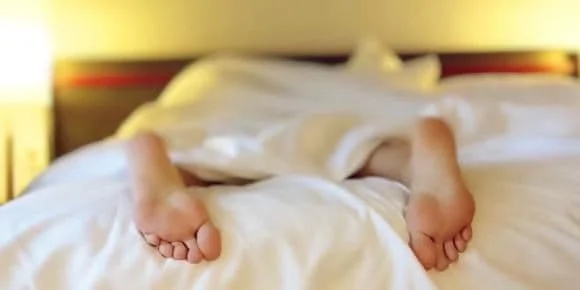
Out from Under the Covers - An Honest Talk About Bedwetting. More Common Than You Know!
If you have a child who is having bedwetting issues, you’re probably fielding well-meaning advice from every direction; set an alarm, don’t let them have anything to drink after 4:00 pm--the list goes on. While well-meaning, these solutions don’t fix the problem, they just prevent the bladder from having anything to leak.
First off, it’s important to realize that your little one is not alone. 20% of 5 year olds wet the bed, and 2% beyond the age of 15. Secondly, it may surprise you that chiropractic may be able to help. What most people don’t know is that chiropractic isn’t meant to fix pain, it’s purpose is to help your body function better by clearing out interference. The brain and nervous system run everything in our body, including the bladder and the muscles that let you hold or release the bladder. Bedwetting is most frequently seen in young children due to how the body develops. The sacrum--what most people call their tailbone--is five separate pieces when we are born. As we age, it slowly fuses into one piece, sometimes taking as many as 30 years. This is important, because the nerves that run the bladder exit the spine from the sacrum. If they become irritated, they become less functional. The urge to go to the bathroom should be a loud signal that not only let's you know when you have to go in the daytime but is loud enough to wake you at night. If there is sacral interference, the signal becomes a whisper that may be loud enough during the day, but not at night. Getting adjusted to clear out this interference can help return the signal to the correct level.
Other factors to pay attention to are fabric softener, food dyes, food sensitivities, and caffeine. Caffeine is a diuretic thus adding insult to injury when you are working on a healthy bladder. Fabric softeners and food dyes can both be neurotoxic. This means they are toxic to the nervous system, particularly young nervous systems. I have had patients who stopped bedwetting as soon as they cut food dyes out of their diet. Finally, food sensitives are very common but often not recognized. If you are sensitive to milk, eggs, gluten, or a host of other foods, they can cause inflammation in the body, leading to irritation of the nerves. Another effect of food sensitives can be constipation, and very full colon can lead to compression of the bladder making it harder to hold at night.
Please please please keep the reinforcement positive when working on bedwetting. Making a child do something as a punishment only solidifies shame into the event. Celebrate dry nights instead of shaming wet ones. Call today if you have someone you love working though bedwetting. We can help determine what needs to change in diet and make sure there is no interference in the nervous system.
More Information on Food Sensitivity
More Information on Constipation
More Information on Food Dyes

